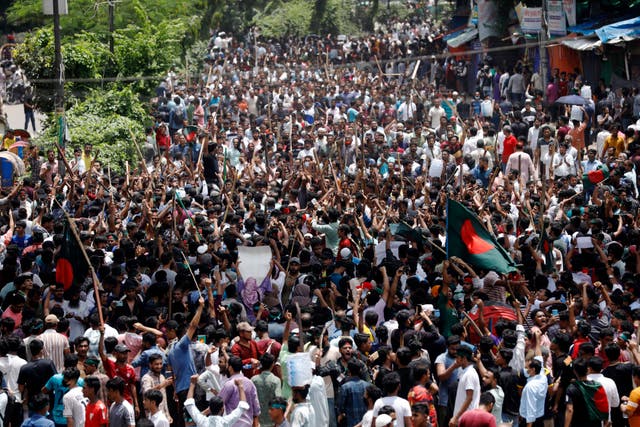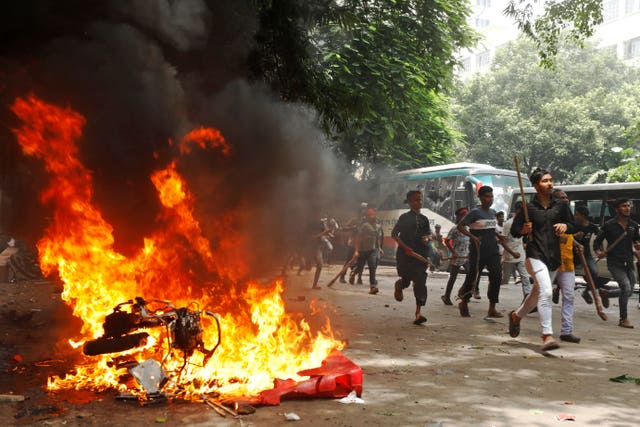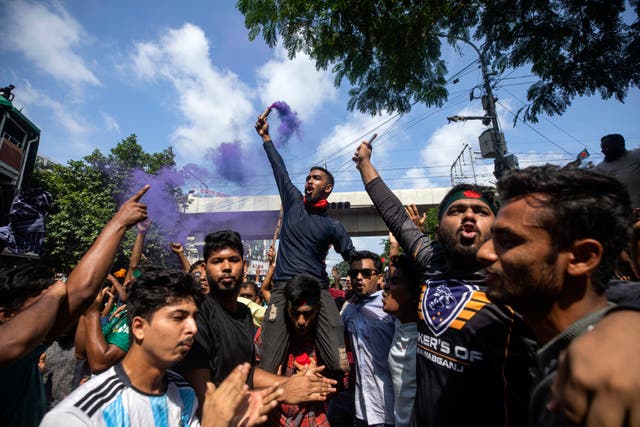Bangladeshi PM resigns and leaves country amid widening unrest
The move ends 15 years in power for Sheikh Hasina.

Bangladesh’s Prime Minister Sheikh Hasina has resigned and left the country amid widening unrest, a military official has said.
The move ends her 15 years in power, and follows weeks of violent protests and clashes with security forces.
The protests began peacefully in late June, as students sought an end to a quota system for government jobs, but turned violent after clashes between protesters and police and pro-government activists at Dhaka University.

On Sunday, nearly 100 people were killed as the protesters clashed with security officials and the ruling party activists across the country.

Bangladesh’s military chief Gen Waker-uz-Zaman announced plans to seek the president’s guidance on forming an interim government.
He promised that the military would stand down, and to launch an investigation into the deadly crackdowns that fuelled outrage against the government. He also asked citizens for time to restore peace.
“Keep faith in the military, we will investigate all the killings and punish the responsible,” Gen Waker-uz-Zaman said.
“I have ordered that no army and police will indulge in any kind of firing.
“Now, the students’ duty is to stay calm and help us,” he added.

Thousands of opposition members were jailed in the lead-up to the polls, and the US and the UK denounced the result as not credible, though the government defended it.
Ms Hasina had cultivated ties with powerful countries, including both India and China. But under her relations with United States and other Western nations have come under strain, as they have expressed concerns over human rights violations and press freedoms in the predominantly Muslim nation of 170 million people.
Her political opponents have previously accused her of growing increasingly autocratic and called her a threat to the country’s democracy, and many now say the unrest is a result of that authoritarian streak.
Ms Hasina arrived in a city in India on the border with Bangladesh in an army helicopter, according to a military official. It is not clear where she would go next.





